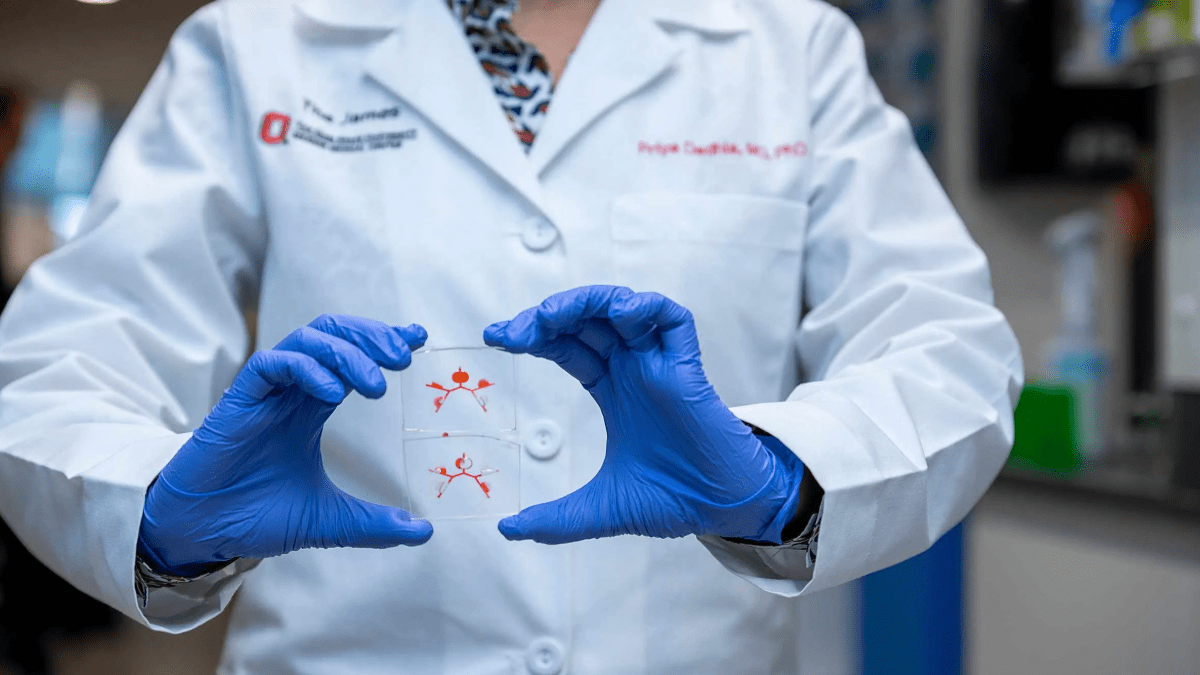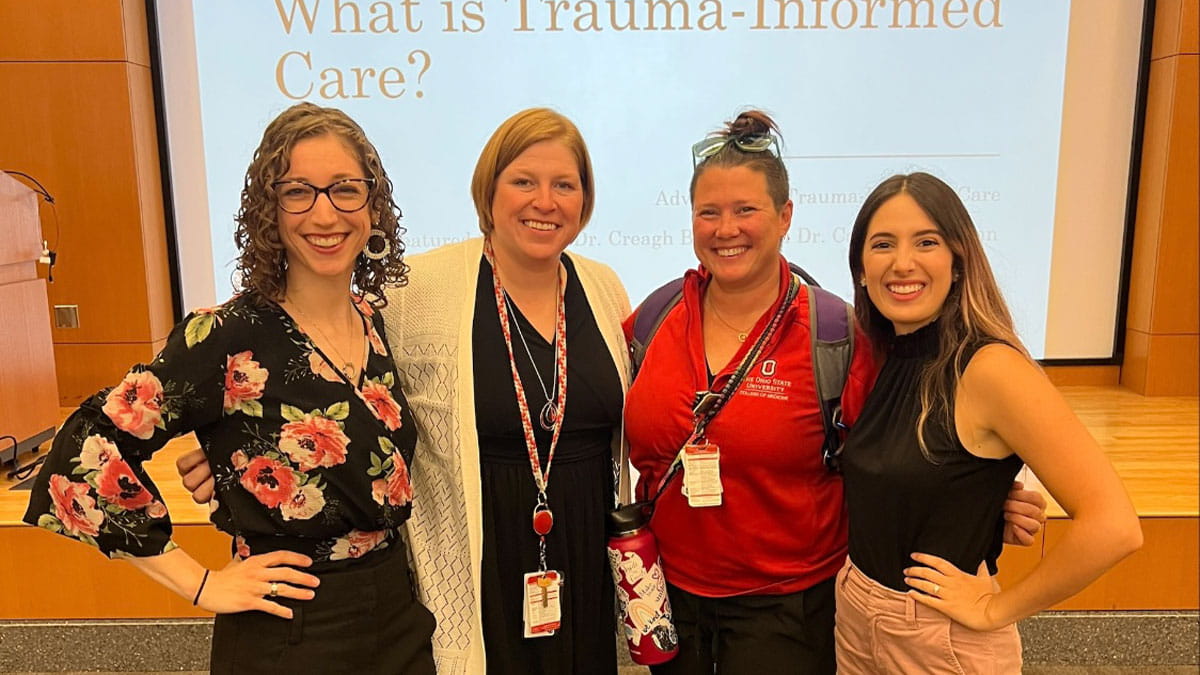Rethinking stakeholder roles in autism interventions
Early intervention (EI) has proven effective in improving functioning for children with autism. However, data concerning how to select, prioritize and individualize intervention approaches are lacking, due in part to the fact that stakeholders have rarely been engaged in discussions about which outcomes and measurement approaches should be used in EI research. A recent project at The Ohio State University College of Medicine is working to change that trend by developing a sustainable model that puts stakeholders, including clinicians, caretakers and autistic adults, at the center of all stages of early autism intervention research.
The project, Rethinking Stakeholder Roles in Autism Spectrum Conditions Interventions, is led by Katherine Walton, PhD, an Ohio State University Nisonger Center clinical psychologist and researcher specializing in EI for children with autism spectrum condition, and co-lead Allison Wainer, PhD, of Rush University Medical Center in Chicago, Illinois. They seek to develop a stakeholder-driven research agenda to better align research questions determined to be of value to the community with those that researchers should investigate. To achieve this goal, the team has engaged a group of 29 stakeholders — 10 autistic adults, 10 parents of children with autism and nine community-based clinicians or policymakers — to identify issues with current EI research, policy and systems and to refine and synthesize ideas across groups to make recommendations for future autism EI research. They hope that these products and activities will help shape recommendations for future autism EI research and provide a framework for effective researcher-stakeholder consultation during future autism research efforts.
In addition to including autistic voices among the stakeholders in conducting research into autism EI, the team notes the importance of considering patients with cultural, ethnic and gender disparities, and looking at the overall well-being when measuring outcomes of EI in these patients and their ability to adapt effectively in their communities and family environments.
“Even the best research studies can only answer the questions they are asking,” says Dr. Walton. “We need more input from stakeholders to make sure we are asking the right questions, and conducting research that will truly have a positive impact on autistic people, their families and their communities.”
While presenting unexpected challenges to the project start-up, the onset of COVID-19 provided an opportunity to test stakeholder involvement in the development of research-related activity, allowing for the development of a series of engagement questions and activities related to the impact of COVID-19 on young children with autism and their families. The team also hopes to determine the acceptability and feasibility of remote participation and data collection in this population. In the future, they hope to obtain funding for stakeholder-driven projects comparing the effectiveness of different early interventions and expanding the model of training and stakeholder consultation to research activities in other health conditions.
The project is funded through a Patient-Centered Outcomes Research Institute (PCORI) Eugene Washington PCORI Engagement Award.



